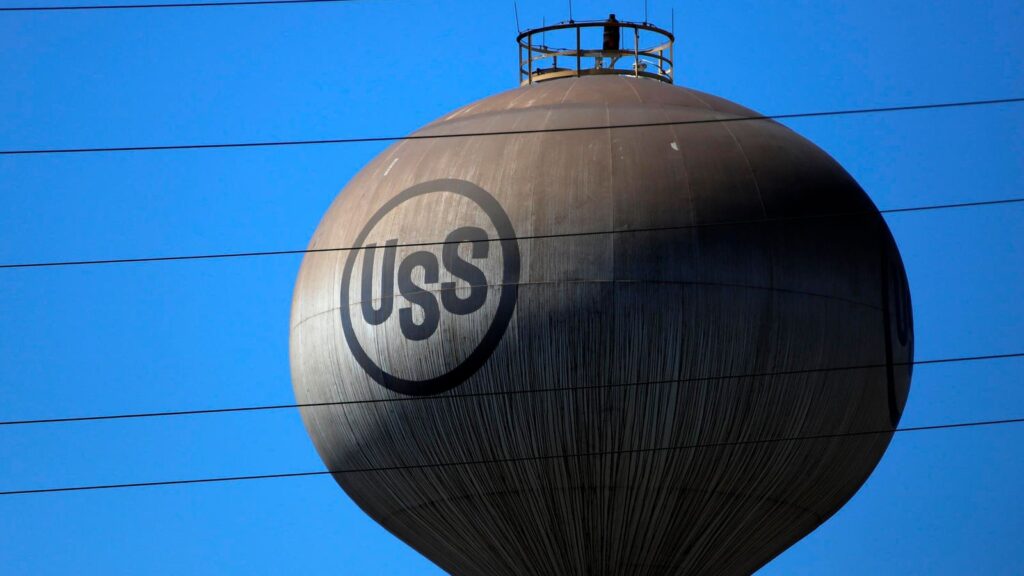Topline
The Committee on Foreign Investment in the United States (CFIUS) was unable to reach a consensus on potential national security risks posed by Japanese firm Nippon Steel’s $15 billion bid to take over U.S. Steel on Monday, leaving the fate of the controversial deal in the hands of President Joe Biden who has expressed his opposition to the deal.
The fate of Nippon Steel’s bid to acquire U.S. Steel now rests in the hands of President Joe Biden.
Key Facts
U.S. Steel said the CFIUS—the interagency government panel that reviews all foreign investments for potential national security and economic impacts—had notified the company about its failure to reach a consensus and move to refer the matter to the President.
The White House confirmed to several outlets it had received the panel’s evaluation and Biden now has 15 days to make a final decision on the merger.
In its statement, U.S. Steel argued that the deal “enhances U.S. national and economic security” and pointed out that Nippon Steel was a company based in Japan “one of the United States’ closest allies.”
Nippon Steel told Nikkei Asia that it was confident the transaction “should and will be approved if it is fairly evaluated on its merits.”
The Japanese company also urged Biden to “reflect on the great lengths that we have gone to address any national security concerns” and the “significant commitments” it had made to growing the U.S. Steel industry.
Get Forbes Breaking News Text Alerts: We’re launching text message alerts so you’ll always know the biggest stories shaping the day’s headlines. Text “Alerts” to (201) 335-0739 or sign up here.
Crucial Quote
“It is our hope that President Biden will do the right thing and adhere to the law by approving a transaction that so clearly enhances U.S. national and economic security,” U.S. Steel said.
Key Background
Nippon Steel’s acquisition bid was announced in December, with the deal valuing U.S. Steel at $14.9 billion, including debt. The Japanese steel maker’s all-cash acquisition offer is priced at $55 per share—a 40% premium above U.S. Steel’s share price just before the announcement. U.S. Steel’s shareholders approved the sale in April this year. However, the deal has faced stiff bipartisan political opposition since the day it was announced. The Biden administration said it was closely scrutinizing the deal as it considered U.S. Steel “a core component” of domestic steel production “that is critical to our national security.” National Economic Council Director Lael Brainard said Biden believes the proposed takeover of U.S. Steel by a foreign company, “even one from a close ally,” deserves “serious scrutiny” for the potential impact it may have on “national security and supply chain reliability.” Since then Biden has been more open about his opposition to the deal saying the country needs to “maintain strong American steel companies powered by American steelworkers.”
Tangent
President-elect Donald Trump has also expressed opposition to the deal and he told members of the Teamsters Union earlier this year that he would block the deal if he won in November. Last year, Vice President-elect JD Vance also harshly criticized the deal, saying: “A critical piece of America’s defense industrial base” was being “auctioned off to foreigners for cash.”
Further Reading
U.S. Steel—A Symbol Of American Strength That Floundered—Sees Shares Hit 12-Year High On $15 Billion Sale To Nippon Steel (Forbes)
White House Signals Nippon Steel’s Acquisition Of U.S. Steel May Face Federal Scrutiny (Forbes)
U.S. Steel Shareholders Approve $14.9 Billion Nippon Steel Sale Amid Biden’s Pushback (Forbes)
Read the full article here
